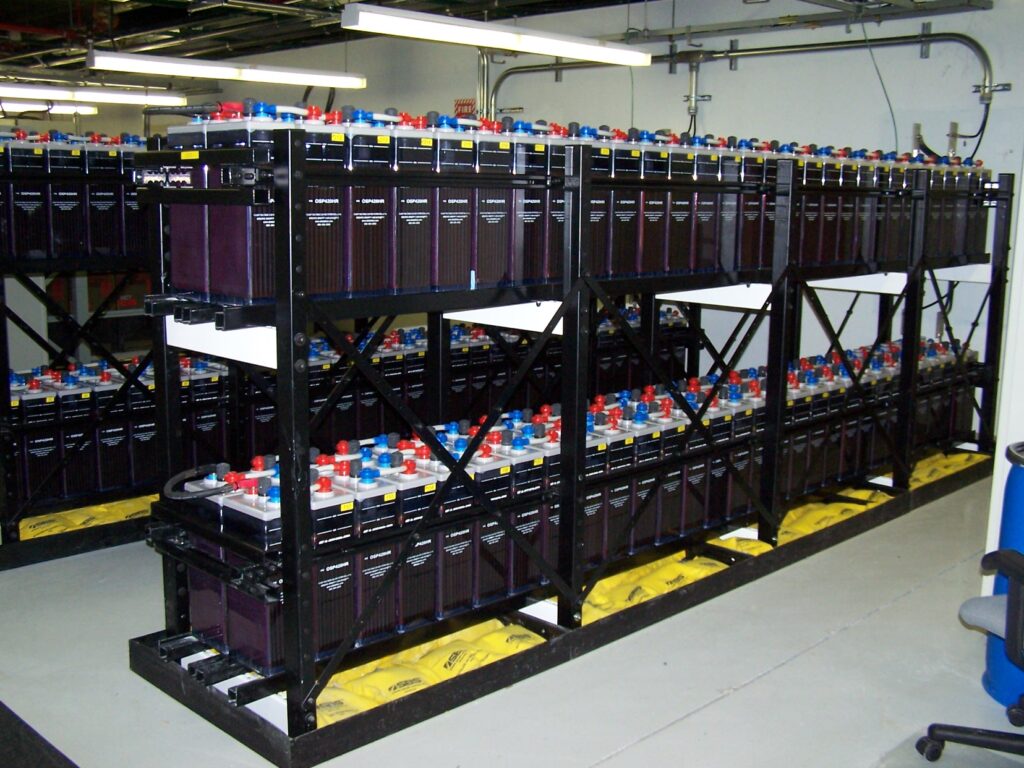Lead-acid batteries have been widely used in various applications due to their reliability, low cost, and relatively simple technology. Some common applications of lead-acid batteries in daily life include:
- Automotive Batteries:
- Lead-acid batteries are commonly used in vehicles for starting, lighting, and ignition (SLI) purposes. They provide the initial burst of energy needed to start the engine and power the vehicle’s electrical systems.
- Uninterruptible Power Supply (UPS) Systems:
- Lead-acid batteries are often used in UPS systems to provide backup power during electrical outages. They help ensure a continuous power supply, preventing data loss or damage to sensitive electronic equipment.
- Emergency Lighting:
- Lead-acid batteries are employed in emergency lighting systems, such as exit signs and backup lighting, to ensure illumination during power failures.
- Renewable Energy Storage:
- In off-grid or standalone renewable energy systems, lead-acid batteries can store excess energy generated by sources like solar panels or wind turbines for later use when the energy source is not available.
- Telecommunications:
- Lead-acid batteries are used in the backup power systems for telecommunications infrastructure, ensuring that communication networks remain operational during power disruptions.
- Marine Applications:
- Lead-acid batteries are commonly used in marine environments to power electrical systems on boats and other watercraft.
- Recreational Vehicles:
- Lead-acid batteries are utilized in RVs and campers to store and provide electrical power for lighting, appliances, and other devices.
- Golf Carts:
- Lead-acid batteries are widely used to power electric golf carts, providing a reliable and cost-effective energy source for these vehicles.
- Wheelchairs and Mobility Scooters:
- Lead-acid batteries are used in electric wheelchairs and mobility scooters, providing a portable and rechargeable power source for individuals with mobility challenges.
- Power Tools:
- Some power tools, particularly those requiring a significant amount of power, may use lead-acid batteries to provide the necessary energy for operation.
While lead-acid batteries have many practical applications, it’s worth noting that they have certain limitations, such as being relatively heavy, having lower energy density compared to some newer battery technologies, and containing hazardous materials like lead and sulfuric acid. As technology advances, alternative battery technologies with improved performance and environmental characteristics are also becoming more prevalent in various applications.


